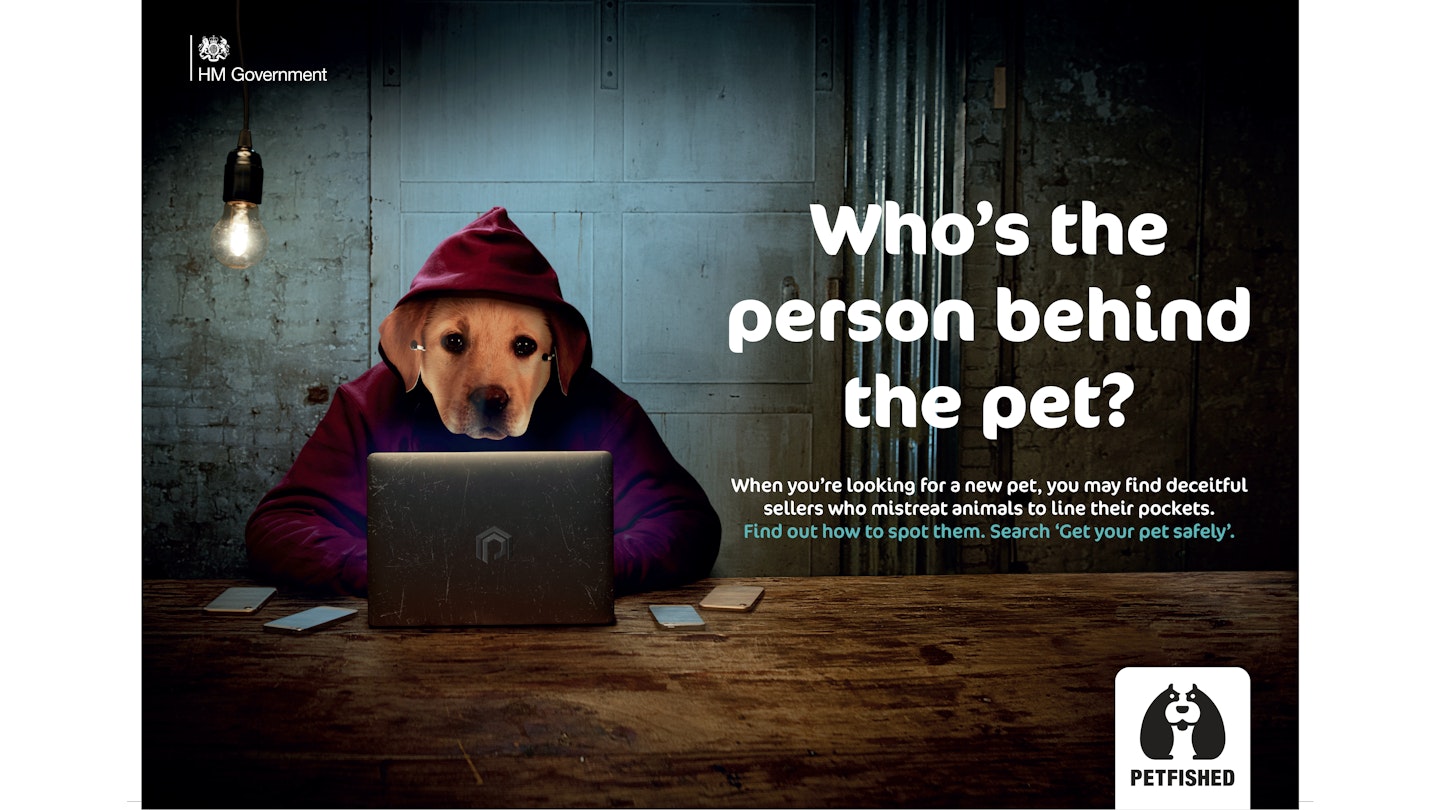As a nation of animal lovers, adopting a pet is a very exciting process. Although many of us adopt pets from animal shelters, buying a puppy is a better choice for many families who may have small children or pet lovers who are in love with a particular breed.
However, how much research should we do into the breeders? Stark new findings have revealed that buying a pet from a low-welfare breeder could cost pet owners an extra £5,000 in vet bills over just 12 months, as a new government campaign is launched urging people to take simple steps to research the seller before buying a puppy or kitten.
According to vets, the scale of the problem is huge with one in five vets surveyed claiming they have seen cases of low-welfare farming so severe they have reported them to authorities with many small pets not making it more than a few weeks in their new homes due to illness and health conditions. And it’s not just puppy farming as the RSPCA has seen a 300 per cent increase in reports of kittens bred in low-welfare conditions since 2013.
In response to the ever-growing problem the government have released a new awareness campaign urging the public to be aware of low-welfare breeders and look out for red flags when buying a puppy or kitten.
RSPCAInspector Callum Issit said:
“There’s always been a high consumer demand for puppies and kittens and sadly there are people out there who try and meet this demand by prioritising quick cash profits at the expense of animal welfare.
“Puppy farming in particular is a disturbing industrial-scale attempt to meet this demand and the low-welfare conditions and animal illnesses this leads to are distressing.
“Some of the worse cases I’ve seen have resulted from so-called ‘back-yard’ kitten breeders removing a kitten from its mother too early with little chance of survival or hundreds of puppies kept together in their own faeces with matted fur.
“It’s important the public remain vigilant. If you suspect foul play at any stage when researching and buying your pet, report the seller immediately to the RSPCA or your local authority to help us stop this. if you're looking for a new pet to join your family please consider giving a rescue animal a new home."”
Things to check before buying a pet
Do your research
Have a look at the sellers profile and search their name online. If you find they are advertising for many litters of different breeds this is a red flag.
Check the sellers contact details
Copy and paste the sellers phone number into a search engine. If the number is being used on numerous adverts, sites and posted over a large range of different dates then it’s likely to be a deceitful seller.
Check the animals age
Puppies and kittens should never be sold under eight weeks old so make sure you don’t buy from anyone advertising a puppy or kitten younger than eight weeks.
Check the animal’s health records
Make sure the seller shares all records of vaccinations, flea and worm treatment and microchipping with you before sale.

Chief Veterinary Officer Christine Middlemiss said:
“I can’t stress enough the importance of doing research before buying a puppy or kitten. Being tricked into buying a seriously ill puppy or kitten is more common than you think.
“We want new pet owners to make the best possible decisions where they are truly informed about what they are purchasing to avoid unscrupulous sellers. Familiarise yourself with cagey behaviour. Warning signs such as a seller’s unwillingness to answer questions or provide legitimate medical documentation could lead to a host of illnesses and even premature death for your pet.
“It’s important to report suspicions of UK puppy farming or low-welfare kitten trade activity to the RSPCA and avoid the temptation to save the pet yourself. By turning down a low-welfare raised pet you are helping to stop this cruelty once and for all.”
About Lucy’s Law
From 6th April 2020, the government’s ban of third party sales of puppies and kittens comes into force. Known as ‘Lucy’s Law’, the decision was taken following a public consultation, from which there was over 95 per cent support for a ban. It will help bring to an end the terrible welfare conditions found in puppy farming and solve a range of existing animal welfare issues.
This will mean that anyone looking to buy or adopt a puppy or kitten under six months must either deal directly with the breeder or with an animal rehoming cent
This will help to crack down on puppy farms and make it much harder for high-volume low-welfare breeders, both licensed and unlicensed, whose trade relies on third party sellers.
These include the early separation of puppies and kittens from their mothers and the increased likelihood of long journeys that puppies or kittens have to undertake. All of these can contribute to an increased risk of disease and a lack of socialisation for the puppies and kittens.
If you're purchasing a pet, make sure you read The Puppy Contract that encourages the responsible purchasing of animals.
For more animal news, pick up a copy of Yours Magazine, out every fortnight on a Tuesday
